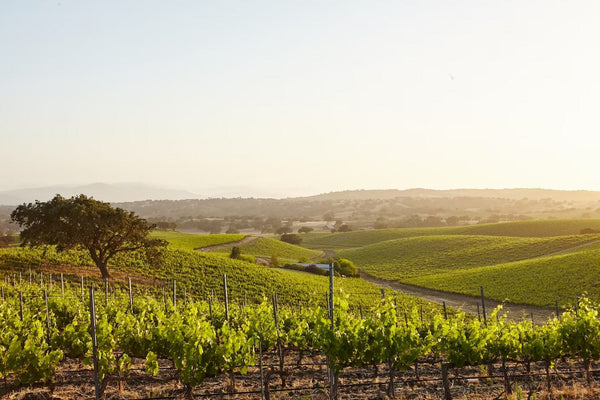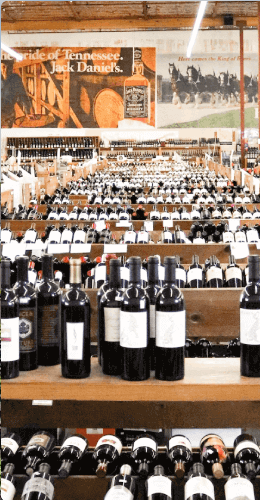Dry Farming vs. Organic Viticulture: Nurturing the Terroir for Exceptional Wines

Winegrowing refers to people who not only make the wine, but also cultivate the vineyard with a specific goal in mind, a holistic one. This produces a captivating blend of tradition and innovation. Behind every bottle of wine at the best wine store USA, there's a story of meticulous care, from the vineyard to the cellar. Two sustainable winegrowing practices have gained prominence in recent years: dry farming and organic viticulture. Fortunately, you can easily try both when you order wine online. These approaches embody a commitment to producing high-quality grapes while minimizing the environmental footprint of winemaking. In this article, we will explore the differences and similarities between dry farming and organic viticulture, shedding light on their impact on the wines we love.
Dry Farming: The Essence of Minimalism
Dry farming is a centuries-old practice that relies on nature's blessings rather than artificial irrigation. In this method, vineyards are cultivated without supplemental watering, relying solely on rainfall to nourish the grapevines. While this approach may seem counterintuitive in regions with irregular precipitation, dry farming promotes a deeper understanding of the terroir and encourages the vines to develop their root systems in search of water.
Water Conservation: The most apparent advantage of dry farming is its contribution to water conservation. In an era marked by increasing concerns about water scarcity, dry farming stands as a sustainable alternative to the heavy water use associated with conventional irrigation methods.
Intense Terroir Expression: Dry farming forces grapevines to adapt to their environment. With their roots delving deep into the soil in search of moisture, the vines are more responsive to the unique characteristics of the terroir. This results in wines that are exceptionally expressive of their origin, reflecting the soil, climate, and topography of the vineyard.
Improved Grape Concentration: Without the dilution effect of excess water, grapes from dry-farmed vines tend to be smaller, with more concentrated flavors. This concentration translates into wines that are richer, more complex, and often age-worthy.
Organic Viticulture: An Even More Holistic Approach
Organic viticulture, on the other hand, is a comprehensive farming system that prioritizes the use of natural inputs and sustainable practices. While it does not necessarily preclude irrigation, organic viticulture focuses on minimizing synthetic chemicals, embracing biodiversity, and nurturing the ecosystem within the vineyard.
Reduced Chemical Exposure: Organic viticulture places stringent restrictions on synthetic pesticides, herbicides, and fertilizers. This not only benefits the environment but also ensures that fewer chemical residues make their way into the grapes, ultimately yielding purer wines.
Enhanced Biodiversity: Organic vineyards often feature a vibrant ecosystem that includes cover crops, beneficial insects, and native plant species. This biodiversity supports natural pest control and soil health, reducing the need for artificial interventions.
Soil Health: Organic practices emphasize the importance of soil health, emphasizing composting, crop rotation, and minimal soil disturbance. Healthy soils promote better vine growth and nutrient uptake, resulting in grapes with balanced flavors and aromas.
Dry Farming vs. Organic Viticulture: Bridging the Gap
While dry farming and organic viticulture represent distinct approaches to sustainable winemaking, they are not mutually exclusive. In fact, many vintners combine elements of both methods to create wines that showcase the best of both worlds.
- Dry Farming with Organic Practices: Some vineyards practice dry farming while adhering to organic principles. By abstaining from artificial irrigation and limiting synthetic inputs, they achieve remarkable terroir expression while also promoting ecological harmony within the vineyard.
- Organic Viticulture with Dry Farming: Organic vineyards may choose to incorporate dry farming during certain stages of the grape-growing cycle. For example, they might reduce irrigation during the final ripening period to enhance grape concentration and flavor.
- Hybrid Approaches: Some forward-thinking winemakers have developed hybrid approaches that leverage technology and data analytics to optimize water use. These methods ensure that the vines receive adequate moisture when needed while minimizing waste, all within an organic framework.
For consumers seeking to buy wine online produced through sustainable practices, both dry farming and organic viticulture offer compelling options. However, the choice ultimately depends on individual preferences and values.
If you're passionate about red wines or white wines that vividly reflect their origin, dry-farmed wines might be your preferred choice. The intense terroir expression from these vineyards can lead to unique tasting experiences that capture the essence of a specific place and vintage. Those concerned about environmental impact may lean towards organic viticulture. The reduced use of synthetic chemicals, promotion of biodiversity, and attention to soil health align with eco-conscious values. For collectors looking to cellar wines for extended periods, dry-farmed wines may be more appealing due to their potential for aging and developing complex flavors over time.
For wine lovers, the choice between dry farming and organic viticulture represents a beautiful dilemma. Both practices share a commitment to sustainability and the creation of exceptional wines, but they do so through different means. Dry farming champions minimalism, emphasizing water conservation, terroir expression, and grape concentration. Organic viticulture takes a holistic approach, promoting biodiversity, reducing chemical exposure, and nurturing soil health.
The best choice for consumers depends on their values and preferences. Some may favor the bold and expressive wines born of dry farming, while others may prioritize the environmental benefits and purity of organic viticulture. Ultimately, both approaches are a testament to the ever-evolving world of winemaking, where tradition and innovation harmonize to create a rich tapestry of flavors and experiences in every glass. As consumers, we have the privilege of savoring the fruits of these sustainable practices and raising our glasses to a brighter, more environmentally conscious future for the world of wine. We hope you learned a bit about sustainable winegrowing options. Please leave us a comment below!


















Leave a comment